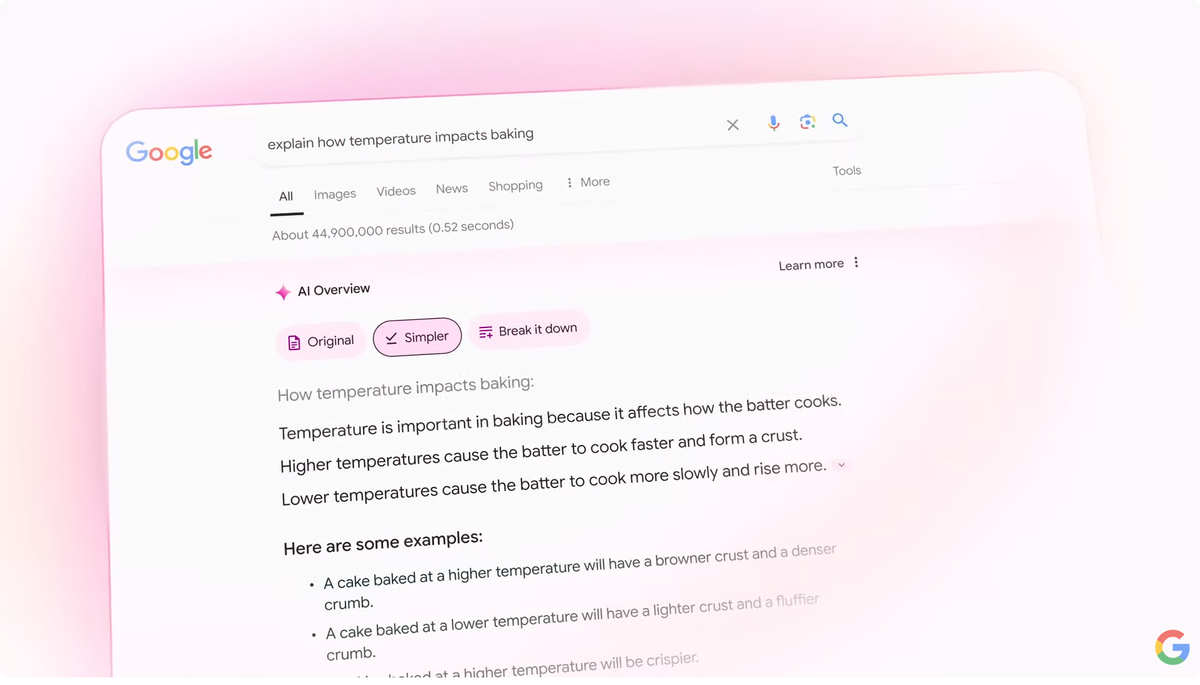After much hype at Google I/O, the tech giant’s AI Overviews aren’t showing up in search results as much as they used to. According to a new analysis from SEO platform BrightEdge, AI Overviews appeared in less than 7% of Google search queries at the end of June, compared to 11% at the beginning of the month. While they aren’t in the top percentiles of search results, the downward trend is notable after so much debate about AI-powered search results.
AI Overviews uses Google Gemini’s AI models to create a summary based on the search results for a user’s query. Google was initially very excited about this feature, but the downward trend for AI Overviews dates back to April, even before the official announcement at Google I/O. While AI Overviews appeared in response to about 15% of queries initially, that number has since declined. The decline accelerated in June, with BrightEdge data showing a drop from 11% to 7% in the span of a month.
This trend held true for virtually all of June, but some saw particularly steep declines. For education searches, AI Overviews appeared 26% of the time at the beginning of the month and just 13% at the end. Meanwhile, entertainment-related queries fell from 14% to almost nothing, while AI Overviews answers about e-commerce rose from 26% to 9%. This suggests that Google wants AI Overviews to appear only when there is less likely to be a problematic answer.
Even the physical space occupied by AI previews at the top of search results is 13% smaller on average. This reduction in pixel space signifies Google’s attempt to balance the prominence of AI-generated content with traditional search results, possibly to mitigate the risks associated with AI inaccuracies.
There are many reasons for the numbers. You'd expect Google to be constantly adjusting based on what it hears from users and what it notes in internal testing. The much-hyped, incorrect and downright dangerous AI-generated responses likely had something to do with it. People will be wary of any tool that tells them to eat rocks.
SE Uh-Oh
Online search is incredibly valuable both technically and economically. AI seemed like an obvious improvement for the industry, but it also raised suspicions about its potential negative impact on traffic to websites. For now, there are still major flaws, no matter what the long-term impact might be. Reducing AI overviews might calm some concerns about the damage AI can do to organic website traffic for now, but Google has made it clear that it wants to implement AI overviews as much as possible, so that fight has only been postponed, not resolved.
And Google isn’t alone in pursuing AI-powered search result summaries. Microsoft Bing and other rivals are trying to fill that void. Yet despite the issues with AI Overviews and Google’s withdrawal, BrightEdge is optimistic about Google’s leadership in AI-powered search.
“There’s no question that Google’s dominance remains strong, and what it’s doing in AI matters to every business and marketer on the planet,” BrightEdge founder and CEO Jim Yu said in a statement. “At the same time, new players are laying new groundwork as we enter an AI-led, multi-search universe. AI is in a constant state of advancement, so the most important thing marketers can do now is leverage accurate insights to monitor, prepare for, and adapt accordingly.”









